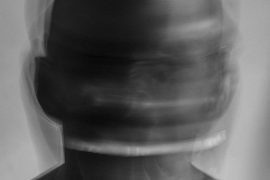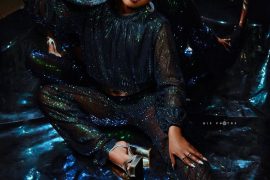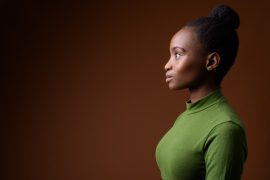In honour of Pride Month we have asked Outright Namibia to share 10 things they would want Namibians to know and do.
Outright Namibia has been doing great work advocating for the LGBTQIA+ community, sexual and gender related social issues. Ndiilo Nthengwe, Advocacy & Communications Officer of Outright Namibia, shared the following:
1. The LGBTQIA+ community does not live separately from the rest of the public, in fact, we are all integrated and interact with public and private institutions.
We pay taxes, we raise families, we consume the same products as everyone else, live in tribal communities, exist in different faith groups, drive cars, rent apartments, attend school and pay for school fees, own businesses, vote at elections, analyse politics, travel internally and across the boarders, work in different sectors and overall contribute to the economy. Our lives are not separate from the public, and yet, our constitution, societal attitudes and unfriendly laws and policies make that distinct division.
2. Out-Right Namibia is a human-rights based organization advocating for the full constitutional rights of sexual, gender and sex minorities in the country.
We do this by constantly lobbying community leaders, public institutions, politicians and the community to stand behind our initiatives, agenda and programs.

3. We offer the following services at our organisation:
Health and Well-Being serives:
- Psycho-social counselling
- Family, Individual and Relationship Therapy
- Support Groups
- Referrals to public health service providers
Legal and Advocacy services:
- Legal referrals
- Rights Violation Legal Counselling
Other programs include:
- Monthly Talks on topical issues the community faces on a daily
- Movement building activities in the form of membership registrations for trainings
- Personal development programs
- Ongoing project implementation
4. We have established branches in all 14 regions across the country, but operational in the following four regions with Regional Community Counsellors (RCC’s):
- Erongo Region
- Kharas Region
- Oshana Region
- Khomas Region (Headquartered in Windhoek West, 32 Lister Street)
5. Anyone is welcome to offer resources and volunteer despite the full time staff available.
The space is open for community members to utilise with internet and electronics for support. Community members can approach us with ideas, queries and cases to assist with.
6. A true democracy is one that has a legal election, but also fundamental human rights principles to protect fragile and vulnerable people.
Our fundamental human rights principles have clearly been severed, despite the fact that Namibia is signed to international treaties such as the one on the Universal Declaration of Human Rights. We do not have a true democracy, we have one that is selective and privileges the lives of others over minority groups.
7. Why does choice make a moral difference?
If homosexuality is a choice (which it isn’t), why is it a choice that should be deemed immoral and why should it not be available to us? Even though liberals and progressives assert our rights through using the choice argument to conclude that “everyone should be given the choice to be who they want to be,” this alone stands to be critiqued. This logic still qualifies the “choice” statements without truly addressing why “choice” cannot be used to conclude someones’ human status and sexual identity. If choice is assigned to our human status as self-identifying persons, then the same should be presented to cis-heterosexual identities, that they CAN be “gay”, but they made the “conscious and moral choice since birth”, to be straight.
Then choice here is merely just about the ability to choose between two or more possibilities, not invasive and harmful conjectures about the core elements of what makes a person human.

8. You can only insist that homosexuality is un-African if you maintain that a few individuals are entitled to define what being African must be and mean.
Namibians have for far too long been touting the narrative that homosexuality is un-African like many of the other African countries that criminalise consexual sex between adults. This just shows that we have a serious national group-think mentality that echoes banal statements on the gender and sexual identity of persons. What is un-African are the colonial penal codes we inherited that criminalises our diverse sexual and gender identities. Coming back to the “choice” statements, if homosexuality is un-African, then why can’t we be given the “choice” too, to live “un-African”, if that’s going to be the only logical space that will be held for us to freely exist in.
9. (Black) victims of racism are homophobic and misogyny fuels their prejudice even further.
This is why the fight for social justice and human rights should always use cross-cutting lenses to ensure that all fronts of violations are dealt with concomitantly. The same is true for the community too, that a self-identifying person can also be a misogynist (which for a majority, emanates from the homophobic bullying they experience for ‘acting like a girl’), but it cannot be discounted. We can be oppressed and wield oppression over other bodies too.
That’s why intersectional advocacy is done, so that no one is left out of the conversation to unlearn. Not even the most vulnerable and marginalised.
10. Safety cannot exist without equality.
Unequal societies generally tend to breed fear and hostility, and with this inequality, safety cannot be guaranteed which eventually affects the dignity and quality of life of a person. Namibia is but one example of an unequal society, therefore making it unsafe for marginalised persons who are often subjected to discrimination, bullying, intimidation, censorship and silencing to live freely and proudly. Equality of rights does not equal total safety, but it does mean that concrete steps are taken to ensure that safety is made available in some respects to minority persons.
Follow Outright Namibia on Facebook, Twitter & Instagram to stay updated and to keep learning about matters that affect the LGBTQA+ community and how you can support their courses.
Happy PRIDE Month!





